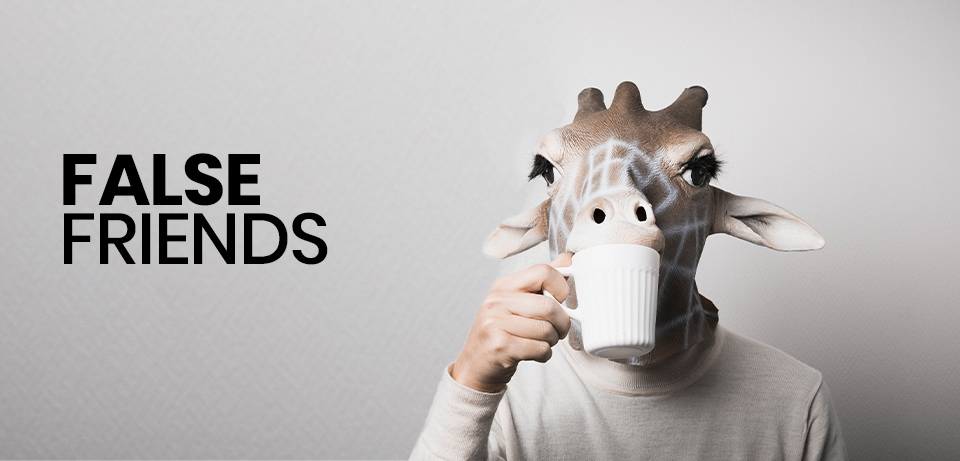False friends

‘False friends’ (from the French ‘faux amis’) is the common name for what are technically known as ‘false cognates’. These are words that are identical in two languages but have a different meaning in each, thus posing a potential trap to novice, and sometimes even advanced, language learners. Here are some classic examples:
Chef
This could be awkward if you think you’re talking to a German cook when they’re actually the boss. The actual German translation of the English ‘chef’ is ‘Koch’.
Gift
Things could backfire spectacularly if you offer someone this in Germany, it isn’t a present but rather poison! Try ‘Geschenk’ instead.
Grand
This could lead to disappointment if you’re expecting something impressive when the French word simply means ‘big’. The correct translation would be more like ‘majestueux’.
Location
This is another French example – whilst it is a synonym of ‘destination’ in English, ‘location’ means ‘rental’ in French. This could be confusing if a company boasts ‘Les meilleures locations de vacances’ as this would not mean ‘best holiday locations’ but rather ‘best holiday rentals’ (‘destination’ is not a false friend and so can be used instead here).
Tuna
Be careful when dining out in Spain, this one means ‘prickly pear’ and it’s ‘atún’ that you want in your sandwich!
Wand
If a German person has one of these at home, they’re not Harry Potter but actually quite normal: ‘Wand’ means ‘wall’. A ‘wand’ would be a ‘Zauberstab’ (literally ‘magic stick’!).
Contact us now to save yourselves any embarrassment by making sure your translations are completely accurate.


 Back
Back